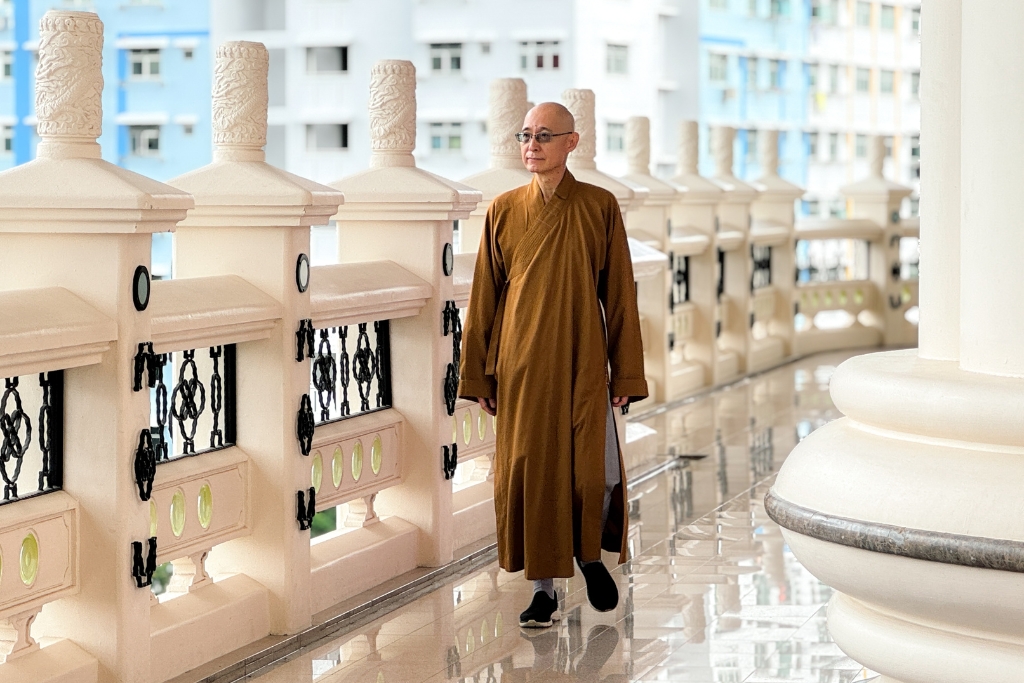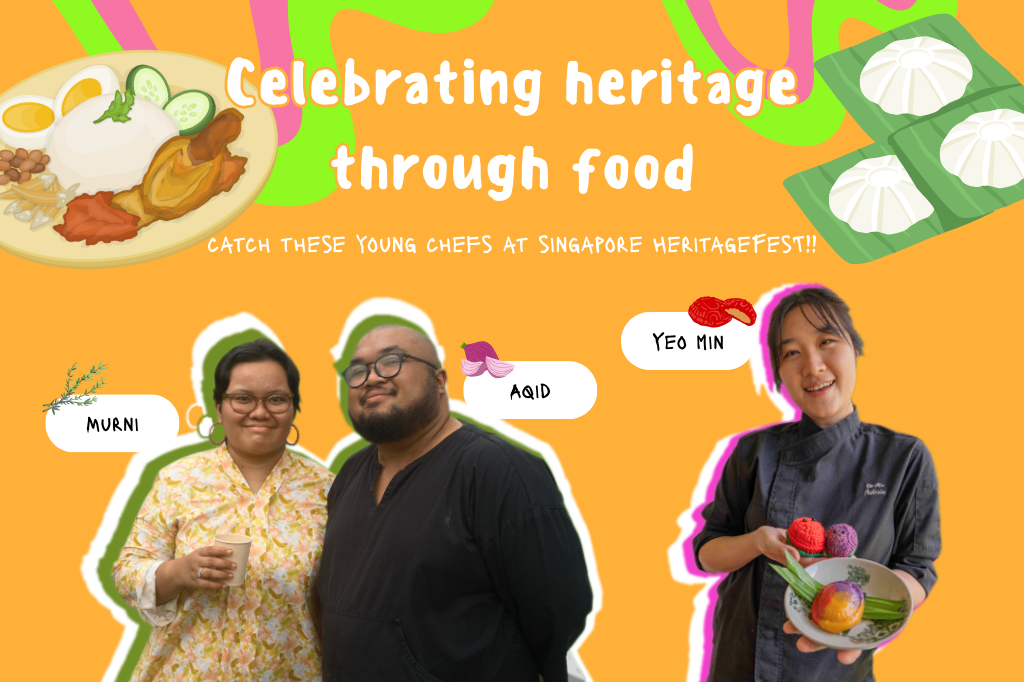How a Young Religion Envisions a Better World
The Bahá'í Faith teaches followers a progressive philosophy that aims to give everyone a voice and hopes to change the way society makes decisions.
- 18 Apr 2022
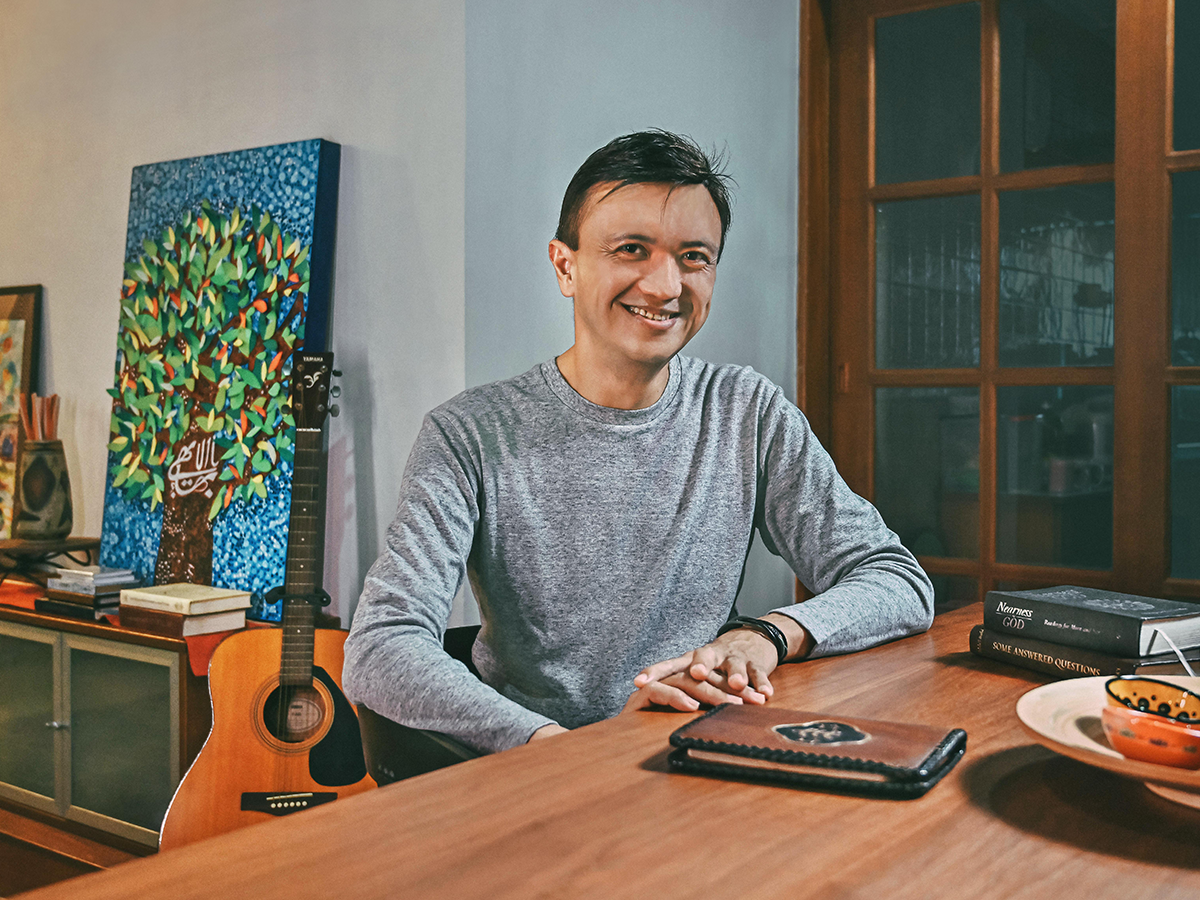
Jes Fergus has been a Bahá'í for more than 30 years. Central to the religion are values such as unity, fighting for justice and eliminating all forms of prejudice.
The Senior Staff Officer in the Singapore Civil Defence Force aims to end meetings on a productive and pleasant note, and values the importance of letting everyone in the room share their perspectives. Open discussions are a norm with his team.
For Jes, this is part of who he is as a Bahá'í.
Followers of the Bahá'í Faith, which was founded in Iran in 1844, embrace tenets of unity, justice and peace, while advocating for elimination of all forms of prejudices, education for all, and the harmony between science and religion. You will also find a Bahá’í asking questions about life and the advancement of society in search of understanding and truth. Being inquisitive is part of their way of life, and it helps them refine their way of thinking.
In Singapore, there are over 2,000 believers and the monotheistic faith is one of 10 recognised religions that are part of the Inter-Religious Organisation (IRO) Singapore. The Bahá'ís are a diverse yet close-knit community, with people from different ethnicities and social backgrounds. Often, they gather at each other’s homes for devotional meetings or for prayers, especially during the Nineteen Day Feast that takes place on the first day of each Bahá'í month. A big part of their lives includes serving their communities where they lived in.
A Bahá'í of more than 30 years and father of two, Jes is an active member of the local community and often facilitates educational activities. He shares with Kaya the relationship he has with his faith, and the role it has in a multi-religious society like Singapore.
How would you explain the Bahá'í Faith to someone who’s hearing about it for the first time?
I would say that the Bahá'í Faith is not a religious denomination but an independent world religion. The core teaching of Bahá'u'lláh, the founder of the Baha’i Faith, centres on this principle of oneness of mankind. We are all made by the same All-loving Creator. Even though we may pray in different languages and call God by various names, we are all referring to the same transcendent Being. Thus, we are one humanity. Our purpose then is to advance our civilisation further by applying both science and religion for the progress of humanity.Right now, thanks to technology, our world has become smaller, and we are more connected. Spiritually, however, there is still much to be desired. So, the teachings of Bahá'u'lláh are designed to bring us to this higher level of consciousness of unification. It is no longer an aspiration or ideal of a utopia. Rather, as a Bahá'í, I believe that this reality will happen in the fullness of time, and I align my thoughts and actions to promote this unification in my daily life.
What does it mean to be an independent world religion?
By independent, it means that the Bahá'í Faith is not a religious denomination or sect from any major religion. For example, Christianity has Catholics, Protestants, Methodists, Baptists, Presbyterians and more, which are denominations of a larger faith. As for ‘world religion’, it means that the faith is all over the world and not particular to a certain place or belonging to a particular ethnic group.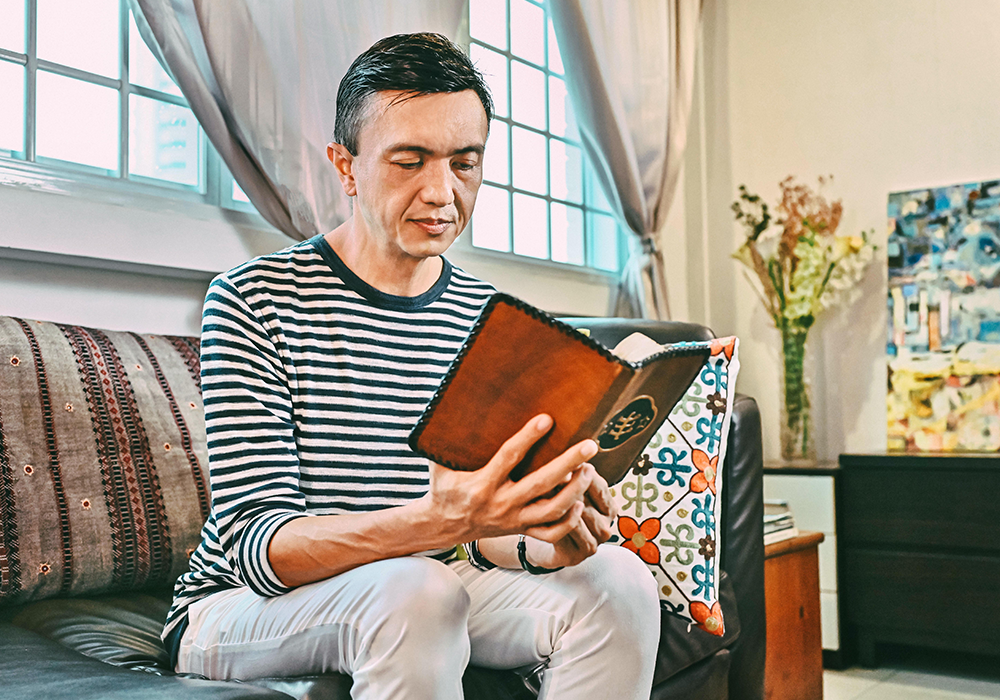
The Baha’i teachings urge Baha’is to pray and meditate every day so that they advance spiritually.
What does it mean to be a Bahá'í?
From the words of ‘Abdu’l-Bahá, who is the son of Baha’u’llah and His successor, to be a Bahá’í simply means “to love all the world; to love humanity and try to serve it; to work for universal peace and universal brotherhood.”As followers, we strengthen our spiritual soul by saying our obligatory prayers and reading the Holy Writings daily, which are revealed scriptures written by Bahá'u'lláh and regarded as the Word of God. We are also encouraged to do philanthropic deeds and contribute to the Bahá'í Fund, which channels financial resources to the welfare and development of our communities, teach the Cause and be involved in service to humanity.
Service is a big part of the Bahá'í Faith. Why is this so?
The concept of worship and service is integral to a Bahá'í’s pattern of life. Service to the community is not a ‘by the way’ thing. We dedicate ourselves to a life of service and we live in a way where we see how we can contribute to the betterment of our community, creating a pattern in that community life for the material and spiritual well-being of all.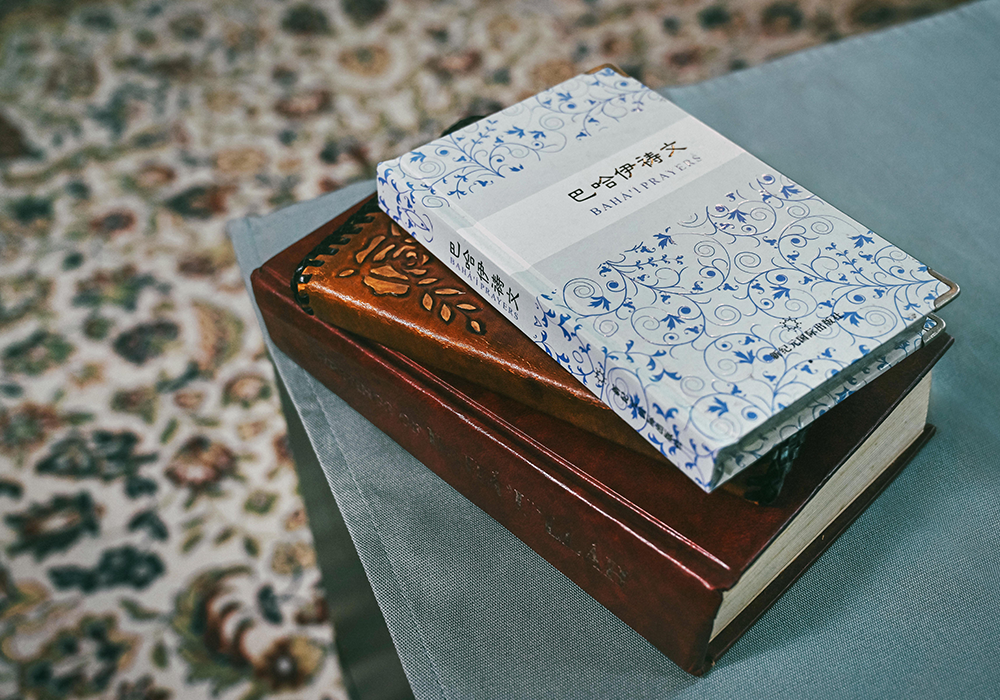
Reciting the daily prayers helps Jes find purpose and direction in life. He considers them food for the soul and guides the way he interacts with others.
How do you practise Bahá’u’lláh’s teachings in your daily life?
We must first recognise that we are spiritual beings and, just like our bodies, we must feed and nourish our souls. Just as we eat healthy and do exercise, likewise, we pray and reflect every day to grow spiritually. I do my prayers in the morning and evening, as well as read the Holy Scriptures and meditate.
There are three types of obligatory prayers – short, medium and long versions – and we are free to choose any of them to recite. They’re a reminder of our purpose, and when we recite them, we also reflect on the things we connect with spiritually. Oftentimes we make mistakes, and these prayers guide me back by showing me direction and purpose, and give me courage to seek forgiveness.
The short obligatory prayer goes like this, “I bear witness, O my God, that Thou has created me to know Thee and to worship Thee. I testify at this moment, to my powerlessness and to Thy might, to my poverty and to Thy wealth......” This gives me that sense of purpose by reciting this prayer every day. I’m reminded of the true nature of my being and it keeps me on the ground with my thoughts, words and actions.
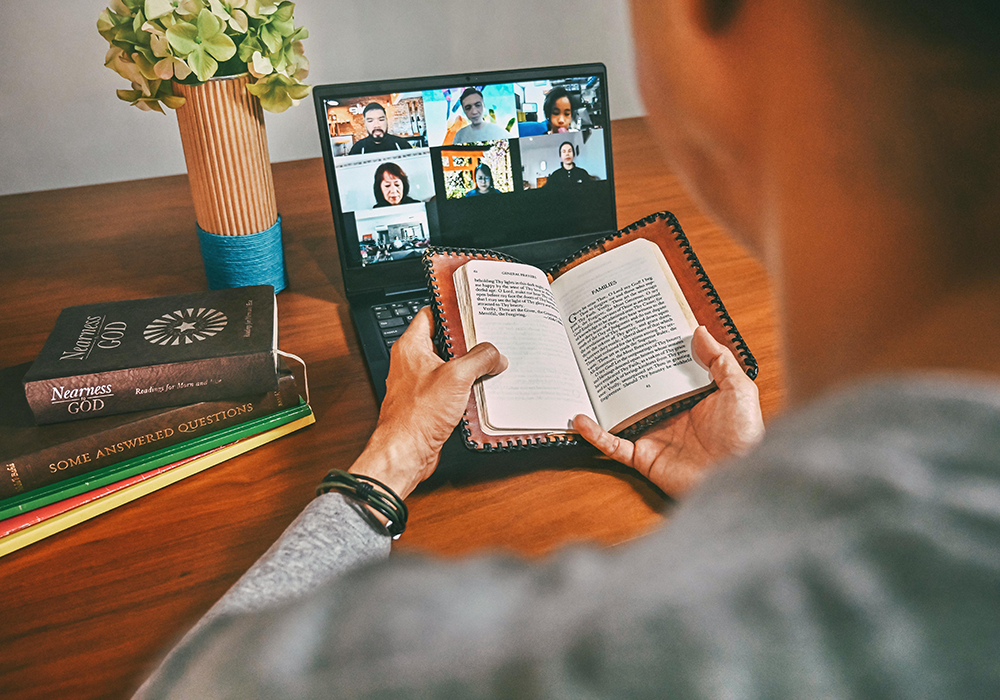
Bahá'ís gather in each other’s homes to celebrate the first day of a new month (19-Day Feast). They take turns hosting, but during the pandemic, the community started to take their meetings online.
Can you tell us more about the Nineteen Day Feast and what you enjoy most about them?
The Feast is a regular Bahá'í gathering, held on the first day of every Bahá'í calendar month, which comprises 19 days. There are three parts to the Feast: prayers, consultation on the affairs of the community, and the social aspect, which is the most fun because this is when we bond over food!The feasts are organised by the Local Spiritual Assembly, a local council which administers the community’s affairs pertaining to a specific jurisdiction. The Local Assembly oversees it, and they assign people in various areas to host and organise the feast. I’ve hosted feasts at my home before and, at one time, accommodated about 25 people, before the pandemic. That’s why I have so many extra chairs! The host provides some refreshments, or it could be a potluck dinner where everyone brings a dish, usually home-cooked. There is no fixed cuisine so the spread can be quite varied!
As we can’t have large physical gatherings like we used to, we went virtual. Participation has actually increased! We can now participate in activities held one after another since we don’t need to travel from place to place. This means more people can join us in different settings.
What is one teaching from the faith that you would like to share with others?
The teaching on consultation is a powerful tool and revolutionary to me. We have to disregard our ego when we step into the consultative space. This means that when we put forth our idea on the table, it’s no longer our idea but for everyone to evaluate it. You cannot be attached to the idea anymore, and this is a difficult concept to grasp for most. It encourages us to arrive at a point of unity that reflects our diverse opinions.I have found that the teachings of Baha’u’llah are like a remedy to the ills that affect me and that of society in general. Consultation is more than just a tool for collective decision-making. It also serves to promote unity and strengthen bonds of trust and love.
Do you practise this with other Bahá'ís only?
I believe that this tool is for everyone. I try to practise this concept of consultation in my workplace as much as I can. I encourage everyone in the meeting to speak up, and also consider the viewpoints of others. It’s not easy because in a meeting, there’ll be people who may not be as vocal as others, and there’ll be some individuals who try to dominate the discussion. So as a facilitator of the meeting, I’ll ensure that there is open and frank but loving dialogue, to be more sensitive of people’s feelings, and try to defuse the tension if someone gets too attached to his or her idea.What is one takeaway about the Bahá'í Faith you would like to leave people with?
Many people get a little wary, or scared even, when they hear about a new religion or belief system. It’s understandable why someone would be sceptical about how a religion like the Bahá'í Faith can be a force in achieving unity, peace and order. Bahá'u'lláh writes that religion is “the chief instrument for the establishment of order in the world and of tranquillity amongst its peoples”. When I became a Bahá'í, I was enlightened by Bahá'u'lláh’s writings on how all religions of the past are connected, and saw new hope and love for mankind.As Bahá'ís, we want our society to be more engaged in constructive consultation. How this transformation will happen depends on the relationship between the three protagonists of this process: the individual, the institution and the community. Everyone has a role to play. Instead of having individuals in constant conflicts with institutions, we need to rethink how all the protagonists can work together towards an equitable and just society. That’s why the consultative process I explained earlier is vital for progress to occur.
The individuals who comprise the community will have to change the collective perspective and concurrently the community at large changes its conversation, therefore creating a momentum that allows the institution to restructure and facilitate this new perspective. This will not be a smooth process, there will be a lot of tension and conversation, but it will also force us to learn how to consult better.
--
You can also find out more about the fundamentals of the Bahá'í Faith and how the Singaporean community practises the faith here.




